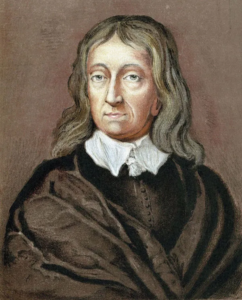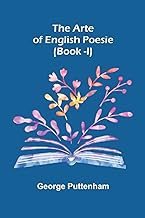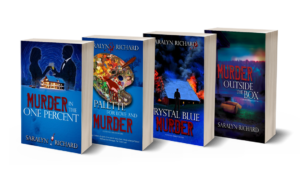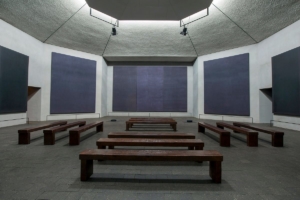Figures of Speech
Figures of Speech
by Saralyn Richard



An English major in college, I was required to take courses in Chaucer/medieval lit, Shakespeare, Milton, 18th and 19th century literature, and American literature, among others. Of these, the dreaded subject was Milton, mainly because the brilliant poet and author of Paradise Lost took full advantage of the vast body of history, philosophy, religion, politics, and literary criticism of the day, and analyzing and interpreting even a few lines of his work could send a person down a rabbit hole for eons.
I had read excerpts from Milton’s works in high school, and I’d found them dry and uninteresting, but when I arrived in my Milton class junior year in college, I had a whole different experience. Call it an awakening, a challenge, a puzzle—whatever—I delighted in the intrigue and purpose of Milton’s language, and I couldn’t get enough.
After the semester, I decided to continue studying Milton by undertaking two semesters of work, researching and writing an honor’s thesis. My focus of study was figures of speech.
Most people understand the function of figurative language and can identify and explain similes, metaphors, personifications, and analogies. Few, however, realize that these represented only a miniscule number of the figures of speech available for Milton and other writers of the Elizabethan and Puritan eras.
I could write treatises—or an honors thesis—about what I learned from books, such as George Puttenham’s The Arte of English Poesie, or Henry Peacham’s The Compleat Gentleman, but for this blogpost, I’ll say that I was astounded by the more than 456 figures of speech used by Renaissance writers of poetry and prose.
The literary devices included repetitions, inversions, comparisons, and rhetorical devices to tickle the ear and tempt the mind. Some of the more obscure, but popular, figures of speech were anastrophe, litotes, and anadiplosis.
Once I learned about them, I had fun hunting for them in Milton’s verse. Each find unlocked a bit of the magic that made Milton’s writing so memorable.
Fast forward to the 21st century, and I was teaching creative writing to students aged 55 and older at the Osher Lifelong Learning Institute. I introduced a unit in figures of speech, and we dug into definitions and examples of a variety of the lesser-used devices. I challenged learners to use some, like synecdoche and metonymy in their writing, and the results were amazing.
Also, when I read a work of fiction by an author like Poe, Tartt, Kingsolver, or Irving, and I find a turn of phrase that is particularly appealing, I love to deconstruct the language. Do you do the same? What is your favorite figure of speech, and which author do you think is especially adept at using figurative language?

Saralyn Richard writes award-winning humor- and romance-tinged mysteries that pull back the curtain on people in settings as diverse as elite country manor houses and disadvantaged urban high schools. Her works include the Detective Parrott mystery series, two standalone mysteries, a children’s book, and various short stories published in anthologies. She also edited the nonfiction book, Burn Survivors. An active member of International Thriller Writers and Mystery Writers of America, Saralyn teaches creative writing and literature. Her favorite thing about being an author is interacting with readers like you. If you would like to subscribe to Saralyn’s monthly newsletter and receive information, giveaways, opportunities, surveys, freebies, and more, sign up at https://saralynrichard.com.






 Linda Rodriguez’s 13th book, Unpapered: Writers Consider Native American Identity and Cultural Belonging, will publish in May 2023. She also edited Woven Voices: 3 Generations of Puertorriqueña Poets Look at Their American Lives, The World Is One Place: Native American Poets Visit the Middle East, The Fish That Got Away: The Sixth Guppy Anthology, Fishy Business: The Fifth Guppy Anthology, and other anthologies.
Linda Rodriguez’s 13th book, Unpapered: Writers Consider Native American Identity and Cultural Belonging, will publish in May 2023. She also edited Woven Voices: 3 Generations of Puertorriqueña Poets Look at Their American Lives, The World Is One Place: Native American Poets Visit the Middle East, The Fish That Got Away: The Sixth Guppy Anthology, Fishy Business: The Fifth Guppy Anthology, and other anthologies.